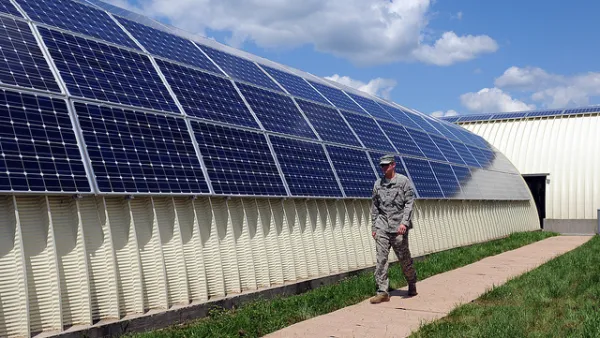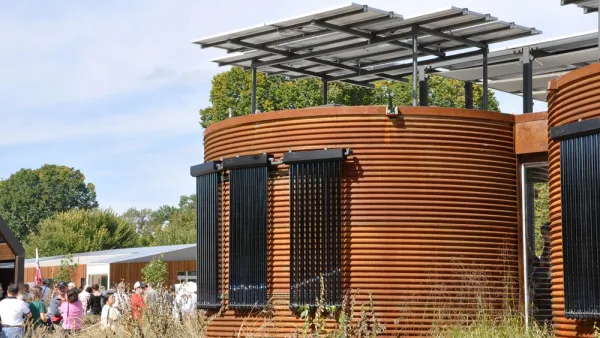As President Trump rolls back climate and energy regulations, many states are attempting to require utilities to get more power from renewable sources. Also, fewer states are attempting to reduce or eliminate renewable energy requirements.

"Today, 29 states require utilities to secure a certain percentage of their electricity from sources like wind and solar," reports Benjamin Storrow for E&E News. "In all, 10 states are considering an increase in renewable portfolio standards (RPS), according to the National Conference of State Legislatures (NCSL)," including:
- Massachusetts and California lawmakers are contemplating proposals to go 100 percent renewable (Climatewire, March 13).
- Legislators in Nevada and New Jersey have laid out plans to get 80 percent of their power from low-carbon sources.
- Efforts in Connecticut and Minnesota, where policymakers are debating boosting renewable energy mandates to 50 percent, are relatively modest by comparison.
Click on the map on the NCSL webpage to see the standards for states and U.S. territories.
However, the RPS, while effective at reducing greenhouse gas emissions, is not the best tool, according to Jay Apt, co-director of the Electricity Industry Center at Carnegie Mellon University. But from a political perspective, meaning one of most effective tools that stand a chance of being passed into law, they do well, he adds.
Many economists would prefer a carbon tax or cap-and-trade regimen to a mandate. A carbon price is more flexible and less costly, they reason. Instead of requiring power companies to adopt technologies like wind and solar, a cap or tax leaves it to the market to identify the least-costly compliance options.
No state has passed a carbon tax. Washington voters rejected a type of carbon tax last November. California is the only state to operate a cap-and-trade program, though it's future is questionable unless new legislation passes. Oregon is considering a program as well.
On the other side of the RPS debate, "[f]our states are considering bills to lower their current standards," writes Storrow. "Ohio and New Hampshire are considering full repeals. Concerns over costs are driving those debates."
In addition, "Americans for Prosperity, a conservative advocacy group funded by the Koch brothers, has been instrumental in many of the efforts to reduce or repeal state RPS mandates," adds Starrow. The group is also promoting a bill to repeal tax credits for electric vehicles in Colorado, reports Hiroko Tabuchi, business reporter for The New York Times.
FULL STORY: More states consider boosting renewable fuel mandates

Analysis: Cybertruck Fatality Rate Far Exceeds That of Ford Pinto
The Tesla Cybertruck was recalled seven times last year.

National Parks Layoffs Will Cause Communities to Lose Billions
Thousands of essential park workers were laid off this week, just before the busy spring break season.

Retro-silient?: America’s First “Eco-burb,” The Woodlands Turns 50
A master-planned community north of Houston offers lessons on green infrastructure and resilient design, but falls short of its founder’s lofty affordability and walkability goals.

Test News Post 1
This is a summary

Analysis: Cybertruck Fatality Rate Far Exceeds That of Ford Pinto
The Tesla Cybertruck was recalled seven times last year.

Test News Headline 46
Test for the image on the front page.
Urban Design for Planners 1: Software Tools
This six-course series explores essential urban design concepts using open source software and equips planners with the tools they need to participate fully in the urban design process.
Planning for Universal Design
Learn the tools for implementing Universal Design in planning regulations.
EMC Planning Group, Inc.
Planetizen
Planetizen
Mpact (formerly Rail~Volution)
Great Falls Development Authority, Inc.
HUDs Office of Policy Development and Research
NYU Wagner Graduate School of Public Service




























